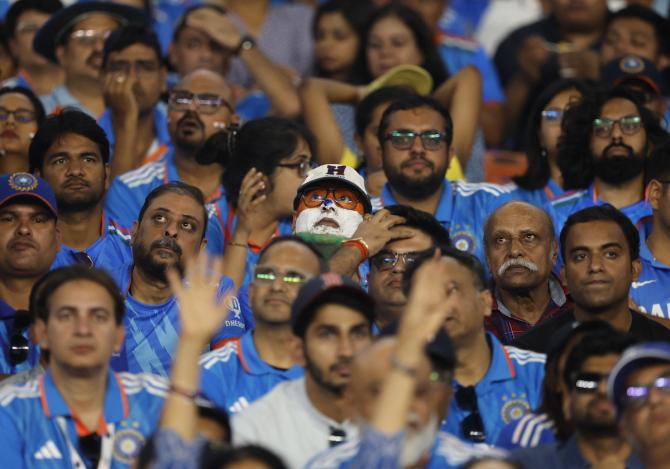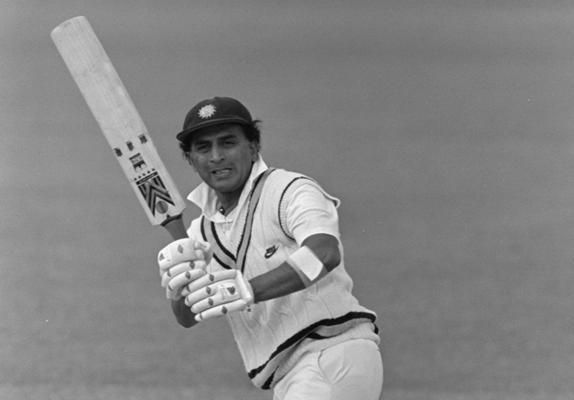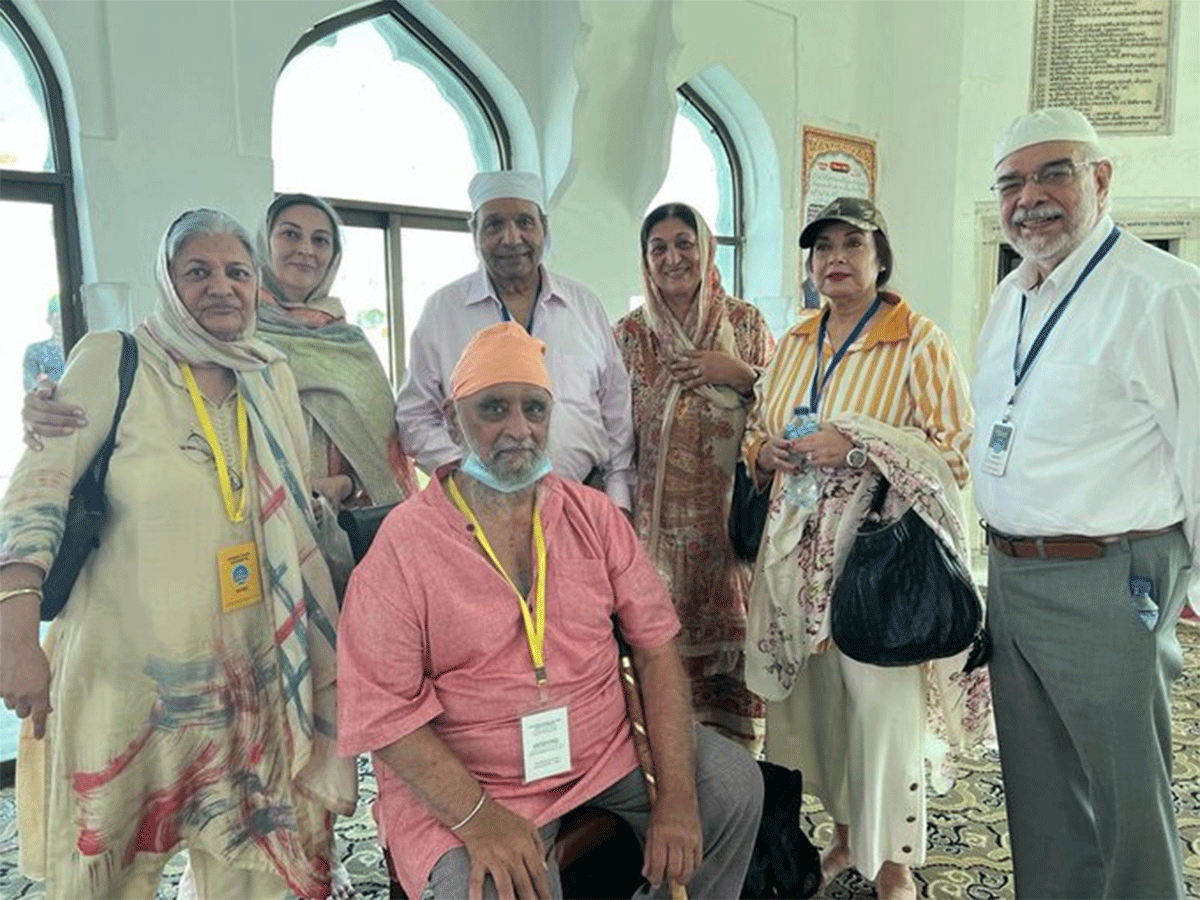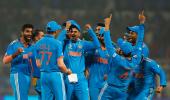Just as the umpire's decision is no longer final, what is disdainfully rejected is the age-old dictum that the game should be played and watched in the spirit of the game, sighs Uddalok Bhattacharya.

When India lost the World Cup cricket final, 'stunned silence' or 'brooding silence' is what newspapers say had descended on the stadium. Hardly surprising!
It could have happened 50 years ago or more. But what has been building itself into a process over the past 35 years is patriotism, all across, is getting uglier.
In this, regrettably, some cricketers themselves are taking part.
Utterances of politically insignificant people reveal attitudes that are not insignificant. They are a power.
A Union minister, once booked in a case of grabbing land that belonged to a Dalit, had remarked in 2014: 'If you do not support (a certain political person), go to Pakistan.'
Put this pernicious, anti-democratic attitude alongside what a prominent Indian cricketer said when he was responding to a person's observation that he preferred English or Australian batsmen to him.
'I don't think you should live in India then ... you should go and live somewhere else.'

And then juxtapose his position with that of Garfield Sobers.
In the course of an informal discussion Sir Garfield was asked who the best batsman he had seen was.
By the Indian cricketer's turn of mind, the West Indian should have named Everton Weekes, or Vivian Richards, or himself, or one among many others.
He did nothing of the sort. After copiously praising all the great ones he had seen, he said 'My view (is) that Sunny Gavaskar is the greatest batsman I have come across.'
This is not just an instance of broadmindedness.
This is also respecting the greatness of the game, which cricketers of today can learn from a person whose shadow they do not measure up to.
When disgust should have been shown at such abominations, there was not much of it visible -- maybe in private conversation but not in the media.
It then fell to an economist who was also West Bengal finance minister (not Amit Mitra) to tell us a story, in his acerbic and yet superb prose.
In a one-day match somewhere in the country, Aravinda de Silva scored a delectable half-century, so delectable that his batting earned his own praise.
In expectation that the crowd would partake of his self-appreciation, he half-raised his bat, and, hearing not a clap, brought it down.
The economist said much that today might be considered anti-national.
It's always comforting to go back to the past.
Vijay Merchant -- many of today's patriots do not know that in first-class cricket his batting average till recently was next only to that of Don Bradman -- once requested Gandhi to put in his signature in his book after having collected the autographs of a touring English team's players.
Gandhi signed at the end of the list of the English players. He, Merchant wrote, did not mind being seen among them.

Many years later, when Bishan Singh Bedi took his men to Pakistan in 1978, the war of 1971 was a recent memory.
India lost the series badly and yet Bedi's friendliness with the Pakistan cricketers was visible on our TV screen. (He knew many of them closely because they all played in English county cricket.)
Similarly, Pakistani cricket commentators were generous in their praise for Sunil Gavaskar, repeatedly saying 'What a great batsman he is', when the Indian opener scored back-to-back centuries in Karachi.
No rancour there was. Nor any hint of communal trouble.
When Asif Iqbal led the Pakistan team to India, the same spirit prevailed.
Of course Mr Iqbal, in the manner of most losing captains, did complain about umpiring after the defeat to India. But the matter ended there.
From the 1980s signs of change were visible -- not only in cricket matches between Pakistan and India but also when other teams played in the country.
Clive Lloyd, in a Test match in Ahmedabad in 1983, took his team mates out of the ground after a stone was thrown from the gallery at a West Indian cricketer.
Showing anger at a team that was clearly superior to the home side was not a specimen of meanness the crowds in India were known for.
When the stadium in Calcutta was set on fire in 1967, and the West Indian cricketers ran out of the ground, they were escorted back to the hotel by people who were not responsible for their safety.
The India-Pakistan series in 1989-1990, held in Pakistan, gave every hint that the slide was irreversible.
Just as the umpire's decision is no longer final, what is disdainfully rejected is the age-old, or one might say time-worn, dictum that the game should be played and watched in the spirit of the game.
Imran Khan used to be respected in India for many things -- his cricket, Oxford education, and, of course, good looks.
Yet, in the World Cup of 1996, when Pakistan had all but lost to India, this gentleman, sitting in the commentary box (commentators too were at one time supposed to be impartial), was openly cheering his compatriots.
And in the throes of defeat, when a Pakistani batsman hit a six, the future Pakistan prime minister got back at the Indians with the word our newspapers used the day after the World Cup final last month: 'The crowd stunned into silence.'
Feature Presentation: Aslam Hunani/Rediff.com













 © 2025
© 2025